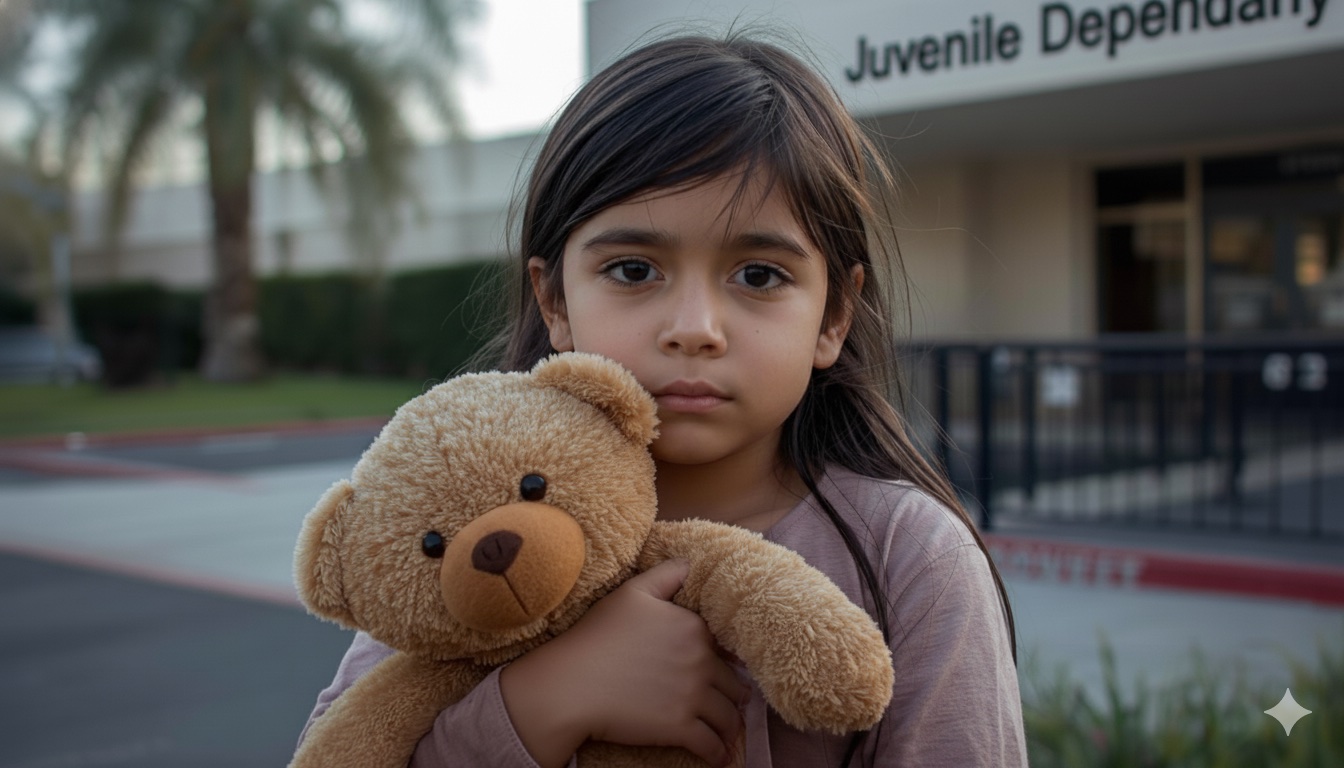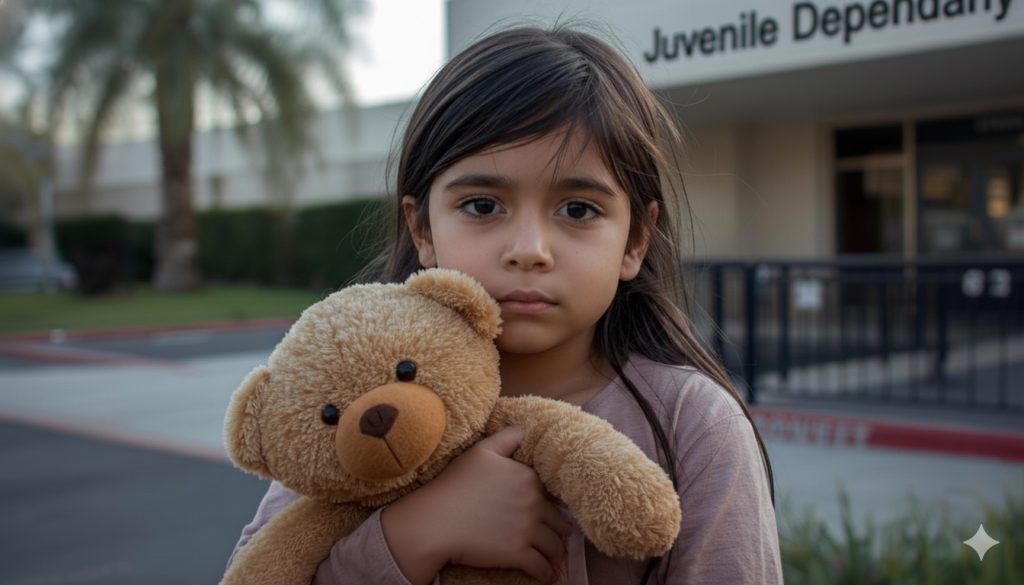- Free Consultation: (800) 265-0217 Tap Here To Call Us
Understanding Juvenile Dependency Cases in San Bernardino County: A Complete Guide for Parents and Guardians


Introduction
Juvenile dependency proceedings in California involve the removal of children from parents or guardians when allegations of abuse, neglect, or abandonment arise. These are fundamentally different from juvenile delinquency cases, which deal with minors’ criminal conduct. In dependency matters, the focus is on protecting the child and preserving the family when possible, rather than punishment of the parent or child.
In San Bernardino County Superior Court (“San Bernardino County Juvenile Dependency Court”), these cases often carry high stakes: the child’s safety, long-term placement, and the fate of parental rights are in play.
Legal Basis for Juvenile Dependency in California
The statutory anchor for dependency proceedings is the California Welfare and Institutions Code (WIC) §§ 300 et seq. Section 300(a) provides that a child may become a dependent of the court if certain conditions exist: for example, the child has suffered physical or emotional abuse, or the parent’s inability to provide care due to substance abuse or mental illness. § 300(a)(1)–(4) and (d)–(g) enumerate those circumstances.
Moreover, § 202 of the WIC states that the purpose of juvenile court jurisdiction is “to provide for the protection and safety of the … minor … and to preserve and strengthen the minor’s family ties whenever possible, removing the minor from the custody of his or her parents only when necessary for his or her welfare or the safety and protection of the public.”
Common Reasons a Juvenile Dependency Case Is Filed
Some of the most frequent grounds for filing a dependency petition under WIC § 300 in San Bernardino County after a CPS investigation include:
- Physical abuse or severe neglect by a parent or guardian.
- The parent’s substance abuse or mental illness causing inability to provide regular care.
- Exposure of a child to domestic violence or severe emotional harm.
- Abandonment of the child.
- Failure to provide adequate food, clothing, shelter or medical treatment.
The Juvenile Dependency Process in San Bernardino County
Initial Investigation & Petition
When the San Bernardino County Children and Family Services (CFS) receives a referral alleging abuse or neglect, an investigation is commonly initiated. If the agency determines a petition should be filed under WIC § 300, the case proceeds to court.
Detention Hearing
If a child is removed from the home, the court holds a detention hearing to determine whether the child must remain in out-of-home placement pending further hearings.
Jurisdiction/Adjudication Hearing
At the jurisdiction hearing, the court determines whether the allegations in the petition are true and whether the child falls under dependency jurisdiction. WIC § 302(a) authorizes the court to assume jurisdiction over a child described in § 300.
Disposition Hearing
If jurisdiction is found, the next step is a disposition hearing where the court orders intervention services, out-of-home placement or remaining at home under supervision.
Reunification Services & Review Hearings
If the child is removed, under WIC § 361.5 the court must order reunification services unless a bypass applies. Periodic reviews occur (often every six months) under WIC § 366.3 to evaluate the permanency plan.
Permanency or Termination of Parental Rights
When the child cannot safely return home, the court moves toward a permanent plan such as guardianship, adoption or termination of parental rights. WIC § 360 governs when guardianship is ordered in lieu of reunification.
Parents’ Rights in Dependency Proceedings
Parents in dependency matters in San Bernardino County have constitutional and statutory rights, including:
- The right to receive timely notice of hearings and the allegations.
- The right to legal representation, including appointed counsel if they cannot afford one.
- The right to participate in the proceedings, present evidence, and appeal if applicable.
- The right to reunification services unless the court determines bypass criteria apply under WIC § 361.5(b).
The Role of the Juvenile Court and Social Workers
In dependency cases, the juvenile court, social workers, attorneys, and service providers collaborate with the goal of protecting children and preserving families. The court relies heavily on the case plan and reports from social workers regarding the status of the child, services to parents, and placement progress.
In San Bernardino County, the Juvenile Dependency Court (located at 860 E Gilbert Street in San Bernardino) is the primary forum for these matters.
What Happens If the Child Is Removed from the Home?
If the court orders removal of the child from the parent, several placement options may be used: placement with a relative or non-relative extended family member, foster care, or group home.
Under WIC § 361.5(a), the court requires the social worker to provide child welfare services to the child and parent(s) after removal.
If reunification efforts fail or are bypassed, the court moves toward a permanent plan: guardianship (WIC § 360), or ultimately adoption and termination of parental rights (WIC § 366.3).
How to Navigate the San Bernardino County Juvenile Court System
Here are some key practical points for parents, guardians, or advocates in San Bernardino County:
- The Juvenile Dependency Court is located at 860 E Gilbert Street, San Bernardino, CA 92415-0955. Phone: (909) 269-8900.
- Arrive early for hearings, bring any evidence you might have (service records, therapy records, school reports).
- If your child is age 4 or older, they may meet their appointed counsel at the initial hearing; if age 10 or older, they have the right to attend hearings.
- Stay in close communication with your attorney and social worker; compliance with services and documentation of progress is critical.
- Consider that time is of the essence. The dependency statute sets strict timelines on reunification.
Hiring a Juvenile Dependency Attorney in San Bernardino County
Engaging an experienced attorney who is well-versed in San Bernardino County’s dependency court culture can make a significant difference. A knowledgeable attorney will:
- Understand the local judges, social workers, and service providers.
- Guide you through hearings, paperwork, service plans and permanency reviews.
- Advocate vigorously for your rights, including visitation, services and, when appropriate, reunification.
- Help you navigate alternatives (such as guardianship) when reunification is unlikely.
Conclusion
Juvenile dependency cases in San Bernardino County encompass some of the most serious and emotionally charged matters in family law. The stakes are high for children, parents and guardians alike. Understanding your rights, the legal process under the Welfare & Institutions Code, and the local dynamics of the Juvenile Dependency Court in San Bernardino can empower you to take effective action. If you are involved in such a case, prompt legal guidance can make a critical difference in preserving your family and protecting your child’s best interests.
FAQ
Q: What happens at a San Bernardino dependency hearing?
A: The court determines whether the allegations in the petition are true and whether the child should remain in or be removed from the home, and orders appropriate services or placement.
Q: Can I get my child back after a CPS case?
A: Yes, reunification is the primary goal under WIC § 202(a) and § 361.5(a), provided the parent successfully completes court-ordered services and the child can be safely returned.
Q: Do I need a lawyer for a dependency case in San Bernardino County?
A: While you may represent yourself, the complexity and high stakes of dependency cases make having counsel strongly recommended — especially given the specialized procedures and local practices involved.
Call to Action
If you are facing a juvenile dependency matter in San Bernardino County, having a dedicated attorney with local experience is crucial. Contact our office to schedule a consultation and protect your rights and your child’s future.
















